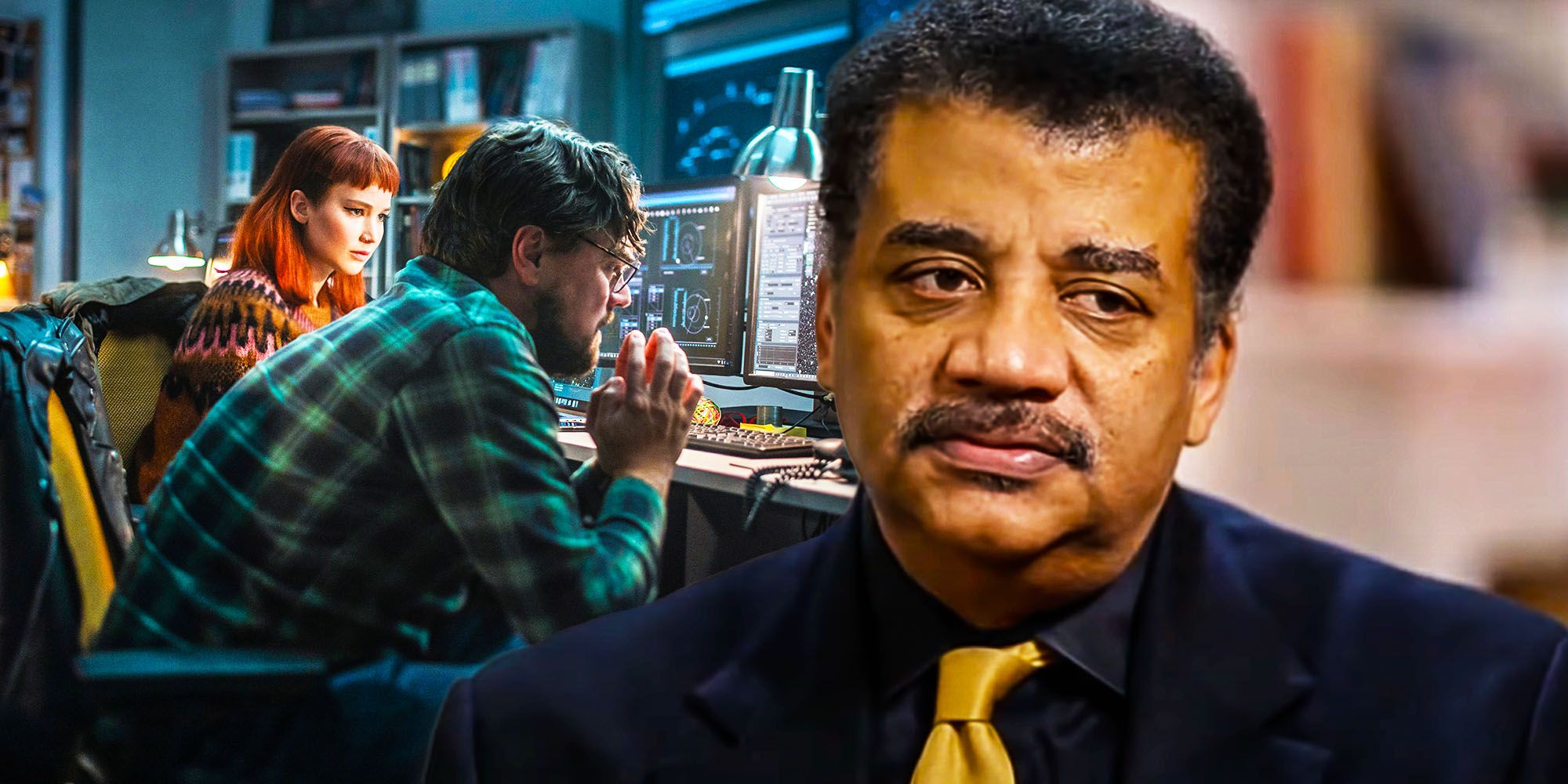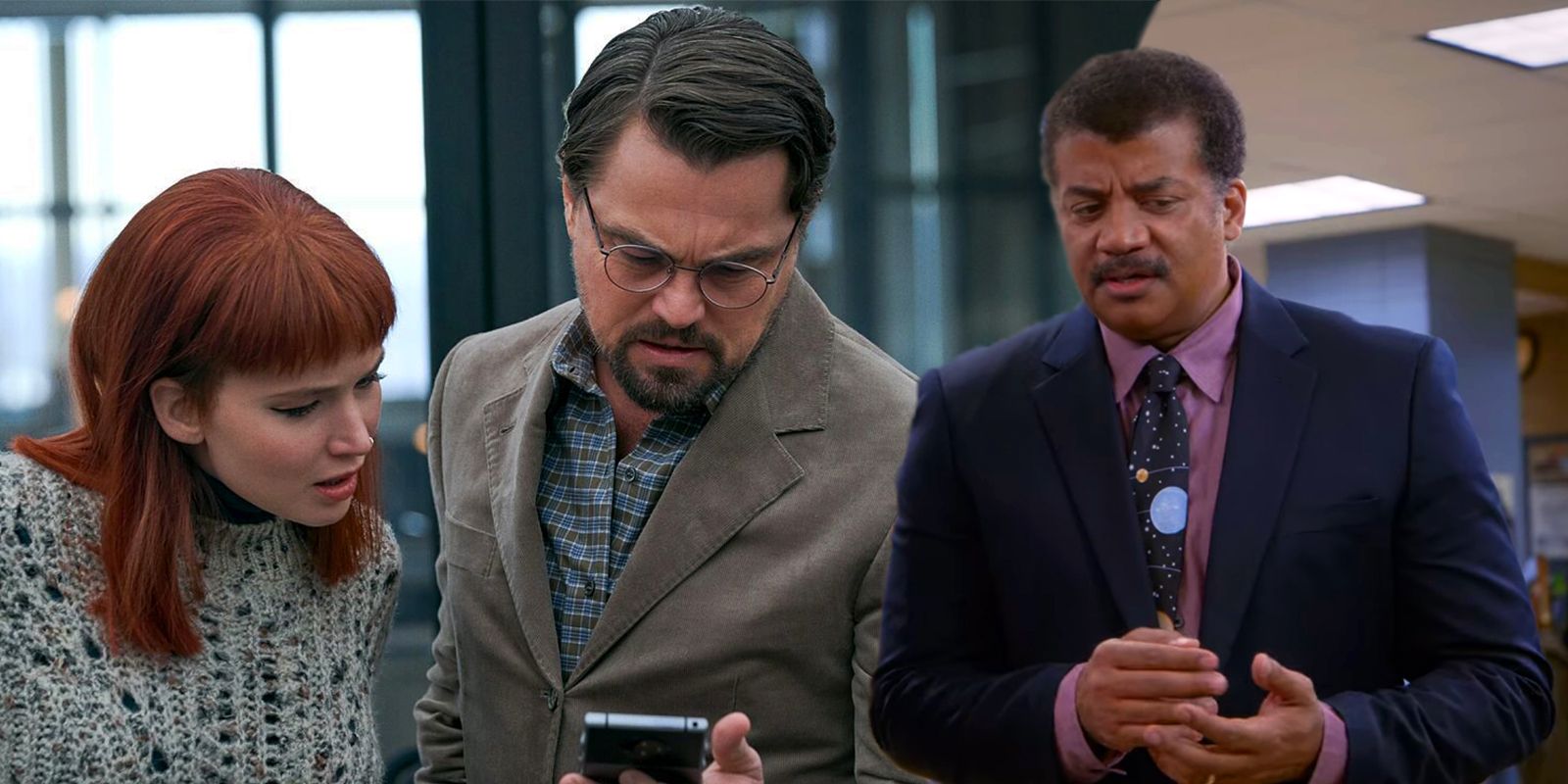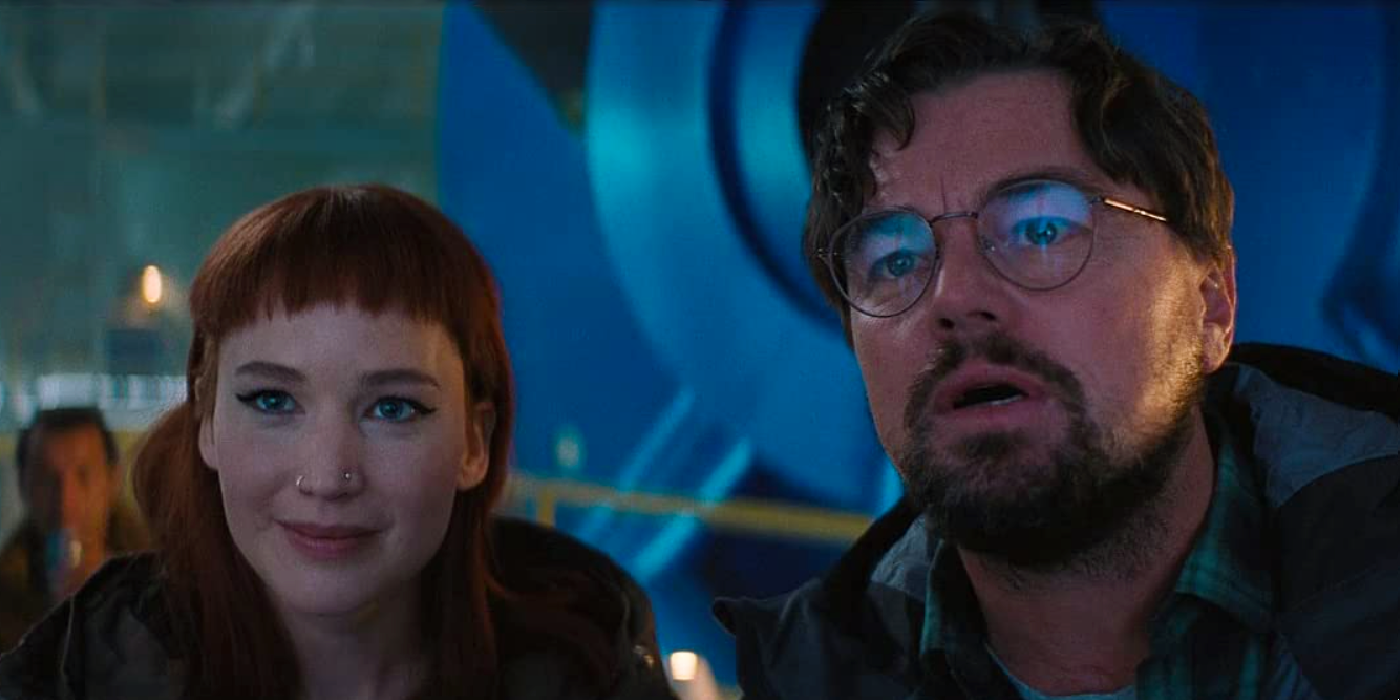Don’t Look Up might have divided critics and viewers since its limited theatrical release, followed by a worldwide release on Netflix, but scientists seemed to have equally loved the satirical sci-fi movie. The film's intentionally unsubtle satire was written, directed, and produced by Adam McKay, who also created and directed Academy Award-winner The Big Short in 2015 and Golden Globes nominee Vice in 2018. Don’t Look Up led Netflix’s Top 10 movie rankings globally following its release, staying number one for two consecutive weeks while being streamed for 152.29 million hours.
Don’t Look Up follows Dr. Randall Mindy (Leonardo DiCaprio), an astronomer and professor at Michigan State University, and Ph.D. candidate Kate Dibiasky (Jennifer Lawrence) on their quest to make the world aware of a comet about to destroy the Earth. In the 6 months and 14 days the world has to try and avoid impact with the comet, Mindy and Dibiasky try to convince President Janie Orlean (Meryl Streep) and her Chief of Staff Jason Orlean (Jonah Hill) to do something about it. When it becomes clear that it’s not in Orlean's political interest to make plans to save the Earth from an extinction-level event, Mindy and Dibiasky try to tell the general public about it by going to media outlets to share their finding, but even that proves futile.
Since its release, Don’t Look Up has been the cause of many heated debates about whether the nobility of a movie’s message should be enough to put aside complaints about the film’s implementation. Still, despite its virtuous purpose, Don’t Look Up has a critical score of 54% and an audience score of 74% on Rotten Tomatoes—a clear display of the film's divisiveness. While the debate is ongoing, and more and more people decide to watch McKay’s movie, one particular group's evaluation of Don’t Look Up appears unanimous.
What Real Scientists Have Said About Don't Look Up
While some critics praised the movie for some of its choices, a good chunk of them believed Don’t Look Up approached the subject with superiority and in a manner that felt too blatant and in-your-face to succeed as a satirical comedy. One group that has nevertheless undisputedly cheered on McKay’s satire are scientists. Here are what some of them have said about Don’t Look Up:
Finally saw the Netflix film Don’t Look Up, a fictional tale of a Nation divided on whether to heed dire warnings of scientists. Everything I know about news-cycles, talk shows, social media, & politics tells me the film was instead a documentary.
The movie Don’t Look Up is satire. But speaking as a climate scientist doing everything I can to wake people up and avoid planetary destruction, it’s also the most accurate film about society’s terrifying non-response to climate breakdown I’ve seen.
I went between laughing and sort of feeling ready to weep, because it did ring so true. (...) To have ourselves not taken seriously, at times ridiculed by the press, to have politicians sometimes pay attention for a while but then lose their focus, for many of us it was very evocative of what we’ve experienced.
Why Scientists Love Don't Look Up (But Movie Critics Don't)
A common sentiment shared by scientists about Don't Look Up revolves around what's shown in the movie—the unflinching resolve of the world's people to ignore the comet's arrival and mock the scientists sharing their findings, a daily occurrence in the field of climate science. What scientists and climate activists see in Don’t Look Up is the exaggerated portrayal of many people’s tendency not to want to see or hear how climate change is already affecting the world. Although they agree it’s obviously a satirical movie, they believe it hits too close to home, as there still are politicians and people who firmly believe climate change to be a hoax, despite the overwhelming proof to the contrary. Whether critics are right and there are some things in Don’t Look Up that could have been done better, one thing’s for sure: when it comes to real-life ongoing issues that are already changing the world as it’s currently known—like climate change—it’s probably best to listen to scientists. If not for their film suggestions, at least for their life’s work and research.



